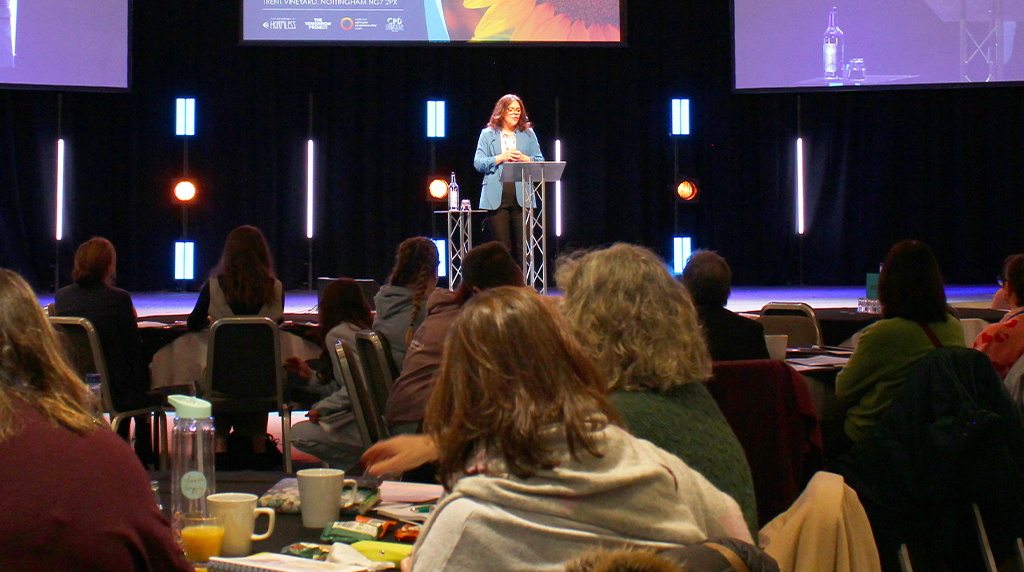By Nick Thompson (Marketing Officer)
Today is World Mental Health Day (WMHD), a time to remind ourselves of the importance of good mental health and to advocate for prioritising and investing in appropriate support. The theme for this year’s WMHD focuses on access to mental health services during catastrophes and emergencies.
As the World Federation for Mental Health notes, disasters can vary greatly: ‘In 2020, approximately 100 million people worldwide were affected by disaster events. In the case of disasters, vulnerable groups can be under great stress, can face major challenges and may develop mental disorders. Nearly one-third of disaster-affected people may experience burdensome mental health consequences’.
However, as the Mental Health Foundation points out, allowing ourselves to be subjected to news of distressing world events can also take its toll on us as individuals, even if we are far removed from the events themselves. Like many people, I often find that streams of negative headlines can weigh heavily on my mental wellbeing. For me personally, this manifests itself most obviously in the late evenings when exposure to news stories often leads to bouts of insomnia and poor sleep patterns.
We live in a hyperconnected world where troubling stories frequently dominate our news and social media feeds, from the climate emergency to economic uncertainty and global conflicts. While staying informed can be valuable, having news at our fingertips 24/7 can also mean there’s no clear boundary between awareness and overload.
If you’ve ever found yourself scrolling through distressing updates on crises and conflicts late at night, feeling anxious or powerless, or debating whether a news break might be best for your peace of mind, then you’re far from alone. Consuming too much negative news can leave us feeling emotionally exhausted, anxious, fearful or even guilty.
But with mindful habits, you can regain a sense of control and reduce the impact of global events on your mental health. The Mental Health Foundation suggests the following strategies:
Set boundaries with the news
Ask yourself how much news content you’re happy to take in, and how often. It’s okay to take a break from the news, and doing so can be beneficial. For example, you could consider checking the news only a couple of times a day, turning off news notifications on your phone or unfollowing social media accounts that bring you anxiety. It can also be helpful to avoid checking the news right before bed – this is your time to unwind and relax for a good night’s sleep.
Use grounding exercises
When global issues are too much to handle, grounding yourself in the here and now can ease your stress response. You could try practising mindfulness, using a grounding exercise, or going for a walk in nature to help bring you back to the present moment.
Have phone-free times
If you often find yourself doomscrolling, having set phone-free times or zones could help break this habit. For instance, you could try turning off notifications or switching your phone to aeroplane mode at certain times of the day. Or, try keeping certain areas phone-free zones, such as the bedroom or the dining table. Allow yourself some time that’s not going to be interrupted by the ‘ping’ of yet another notification.
Focus on what you can control and positive actions you can take
Although what’s happening in the world can seem very big, small actions still matter. Whether it’s signing a petition, volunteering with a local cause or donating items, taking positive action can help shift feelings out of helplessness and into purposefulness.
Give yourself permission to rest
Rest isn’t something you need to earn – it’s essential for wellbeing. Taking time to look after yourself doesn’t mean you’ve stopped caring about anything else; it means that you are looking after yourself so that you can keep on caring. Whether you read a book, take a nap, paint a picture or do some yoga, choose something that allows you to rest and recover.
Talk with others
When you feel overwhelmed, it can help to connect with other people. You could spend some quality time with loved ones, family or friends. You could also talk to someone about how you are feeling, for instance, by contacting:
- A helpline, such as Samaritans on 116 123 (UK)
- Mind’s online community: join Side by Side
- A text support line: text SHOUT to 85258 (UK)
In a world that rarely slows down, it’s easy to feel overwhelmed by a constant stream of unsettling news. Caring for your mental health doesn’t mean turning away from what’s happening around you – it means setting healthy boundaries so you can engage from a place of strength and calm. Remember, you don’t have to carry the weight of the world on your shoulders. Small, mindful choices can help you feel more balanced, resilient and at peace in an ever-changing world.




